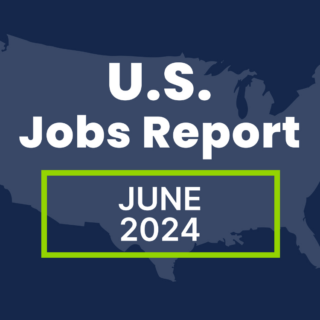Over the past five years, the veteran unemployment rate has fallen, and new challenges are emerging. The unique employment issues faced by military spouses are rising to the forefront. In our earlier series on veteran employment, we addressed the 18 percent unemployment rate among military spouses and urged companies to focus their hiring efforts on the entire military family.
A White House Meeting
Hiring our Heroes, a program of U.S. Chamber of Commerce Foundation, is now bringing those issues to the attention of the White House. PeopleScout is a founding and current board member of Hiring Our Heroes.
In early August, representatives from Hiring our Heroes, alongside 10 military spouses, met in the Roosevelt room at the White House. The group met with Ivanka Trump, Kellyanne Conway, Secretary of Labor Alex Acosta and Small Business Administrator Linda McMahon to share the unique challenges those spouses face. Media outlets covered the event as part of the administration’s “American Dream Week.”
CNN reports the group focused on issues like state-by-state licensing requirements that can make it difficult for spouses in professions like teaching, law and nursing to find jobs when a family moves as a part of one family member’s military service. Officials with Hiring Our Heroes say the meeting helps elevate the employment challenges of military spouses to the same level of importance as veteran unemployment.
The Study
In June 2017, Hiring Our Heroes released a report that provides numbers and new details about the employment challenges of military spouses. The report calls attention to the fact that military families struggle to maintain two incomes, something that more than 60 percent of American families rely on. In the military, only about 50 percent of households have two incomes.
Military spouses say they struggle to find consistent employment as their family moves due to a military transfer or as they take on additional family responsibilities during a deployment. 92 percent of military spouses are women, and the unemployment rate for military spouses is about four times higher than the level of unemployment for all American women.
When searching for a job, military spouses say the most frequent issue they face is that employers don’t want to hire them out of fear that they will move. They also struggle explaining gaps in their resume and often need a more flexible schedule while their spouse is deployed. Because of these challenges, about a quarter of military spouses say it has taken them more than a year to find a job after a move and many work part-time or seasonal jobs or work more than one job when they want permanent, full-time employment.
When military spouses do find employment, about 70 percent report that the job does not take full advantage of their work experience and education. Nearly two-thirds of military spouses say they have taken a decrease in pay or responsibilities in their current job. Most military spouses with post-secondary education say that the military lifestyle does not support career opportunities for both spouses.
These issues faced by military spouses have much broader implications. Finding work and managing a career is one of the top stressors for military families, just behind deployments and moving away from friends and families. That stress plays a significant role in a veteran’s decision to leave the military, according to the study, and impacts that military’s readiness and ability to recruit.
A Long Partnership
PeopleScout has long been a partner of Hiring our Heroes in its mission to help veterans, transitioning service members, and military spouses find meaningful employment opportunities. Our parent company, TrueBlue, was a founding member of the national advisory circle on the Veteran Employment Advisory Council, which was created in 2011. The VEAC is committed to hiring veterans and military spouses, establishing best practices for veteran employment, reporting measures like job opportunities, interviews and placements, providing mentors to military members transitioning into the civilian workforce and working with other businesses to do the same.
TrueBlue is also on the Wounded Veteran and Caregiver Employment Advisory Council, which focuses on the employment needs of wounded veterans and veteran caregivers. The council focuses on finding flexible work schedules or remote-work opportunities to support veterans’ and caregivers’ integration back into civilian employment. Many veterans face permanent injuries, including post-traumatic stress (PTS), physical disabilities and traumatic brain injuries that make the transition to traditional employment difficult.
TrueBlue backs up that commitment through action, hiring more than 30,000 veterans every year. That’s more than any other recruiting company in the world. For three straight years, TrueBlue companies PlaneTechs and PeopleScout have earned the Military Friendly Employer designation. PlaneTechs is also ranked #1 by GI Jobs among small to mid-size companies. PeopleScout also created the Veteran Talent Exchange, connecting veterans to employers committed to their hiring.



